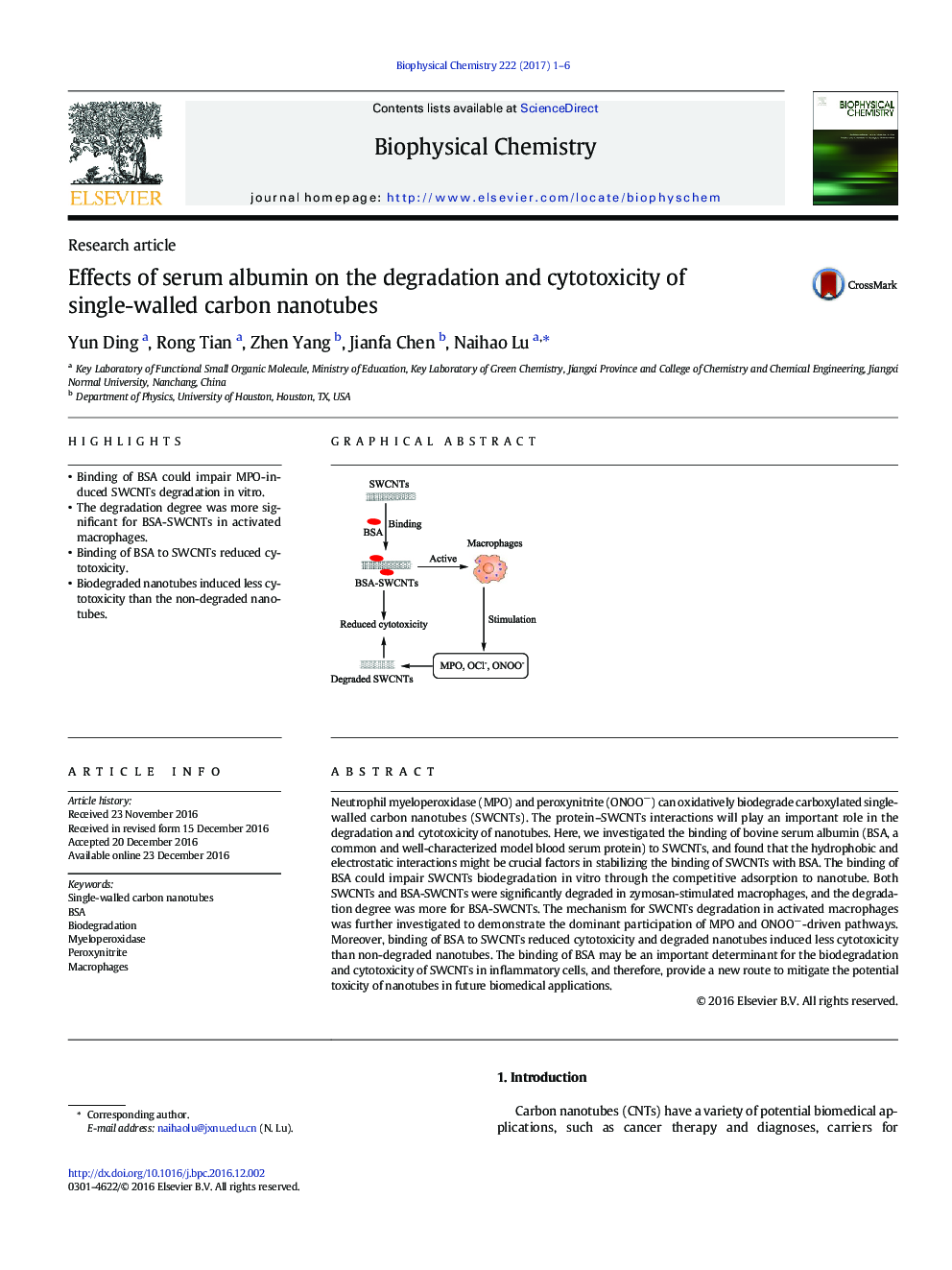| Article ID | Journal | Published Year | Pages | File Type |
|---|---|---|---|---|
| 5370646 | Biophysical Chemistry | 2017 | 6 Pages |
â¢Binding of BSA could impair MPO-induced SWCNTs degradation in vitro.â¢The degradation degree was more significant for BSA-SWCNTs in activated macrophages.â¢Binding of BSA to SWCNTs reduced cytotoxicity.â¢Biodegraded nanotubes induced less cytotoxicity than the non-degraded nanotubes.
Neutrophil myeloperoxidase (MPO) and peroxynitrite (ONOOâ) can oxidatively biodegrade carboxylated single-walled carbon nanotubes (SWCNTs). The protein-SWCNTs interactions will play an important role in the degradation and cytotoxicity of nanotubes. Here, we investigated the binding of bovine serum albumin (BSA, a common and well-characterized model blood serum protein) to SWCNTs, and found that the hydrophobic and electrostatic interactions might be crucial factors in stabilizing the binding of SWCNTs with BSA. The binding of BSA could impair SWCNTs biodegradation in vitro through the competitive adsorption to nanotube. Both SWCNTs and BSA-SWCNTs were significantly degraded in zymosan-stimulated macrophages, and the degradation degree was more for BSA-SWCNTs. The mechanism for SWCNTs degradation in activated macrophages was further investigated to demonstrate the dominant participation of MPO and ONOOâ-driven pathways. Moreover, binding of BSA to SWCNTs reduced cytotoxicity and degraded nanotubes induced less cytotoxicity than non-degraded nanotubes. The binding of BSA may be an important determinant for the biodegradation and cytotoxicity of SWCNTs in inflammatory cells, and therefore, provide a new route to mitigate the potential toxicity of nanotubes in future biomedical applications.
Graphical abstractDownload high-res image (94KB)Download full-size image
